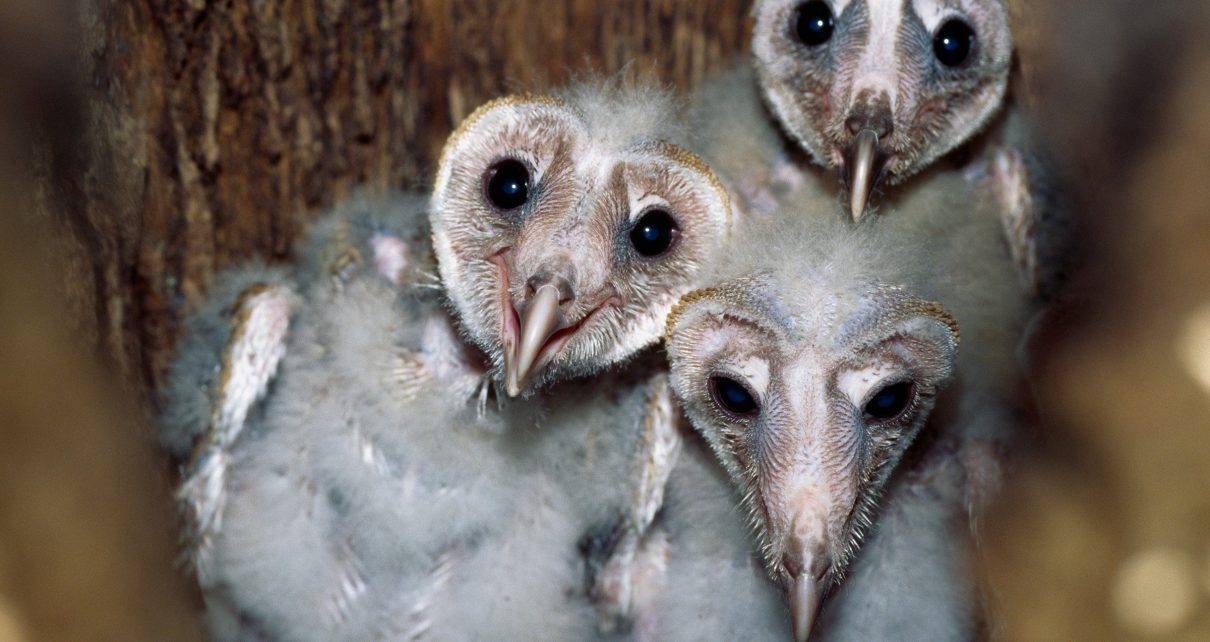Robin Hood famously stole from the rich and gave to the poor. Young, newly hatched barn owls do something similar.
On average, barn owls raise six chicks at once. And sometimes as many as nine. But they don’t all hatch at the same time, which means the older owlets are generally larger and healthier than their younger brothers and sisters.
As long as the little owls remain in the nest, they’re completely dependent on their parents for food. The problem is that the small rodents that they eat can’t be split up. So when mom or dad returns to the nest to feed their offspring, only one chick can eat a time.
In many bird species, the oldest would simply outcompete the youngest, but barn owls are different. Turns out the older, healthier birds sometimes donate their meals to their hungrier siblings.
Adults in other animals species share their food.
“It’s mainly observed when males want to reproduce with females, so there [are] many exchange[s] of food. Or in primates there [are] many exchange[s] of food and grooming, but only in adults.”
Evolutionary biologist Pauline Ducouret from the University of Lausanne in Switzerland.
“And in chicks, it is really rarely observed. So it’s quite impressive that in this species there are so many cooperative behaviors.”
She and her team wanted to know how this unique behavior evolved. It could be explained by the direct benefits gained through cooperation, such as trading food for grooming. Or it could be explained by the indirect benefits gained from helping others that share your genetic heritage—also known as kin selection.
They found that the answer was both. Younger birds groomed older ones more often than older ones groomed the youngsters. And in return the older birds fed their younger siblings. In addition, older owlets preferentially offered food to their hungriest siblings, even in the absence of grooming.
But food sharing only happened when the researchers artificially provisioned the owlets with extra food. So it’s not that the owls risked their own survival to help their siblings. But when there was more than enough to go around, they shared instead of hoarding. The results are in the journal The American Naturalist. [Pauline Ducouret, et al. Elder barn owl nestlings flexibly redistribute parental food according to siblings’ need or in return for allopreening]
Ducouret says that evolutionary biologists usually characterize sibling relationships as competitive or even antagonistic. But remarkably complex examples of cooperation can still be found among animal brothers and sisters. Seems that even newly hatched barn owls know that sharing is caring.
—Jason G. Goldman
(The above text is a transcript of this podcast)



